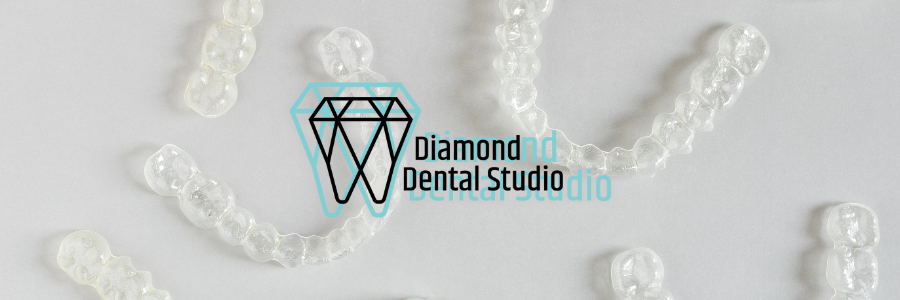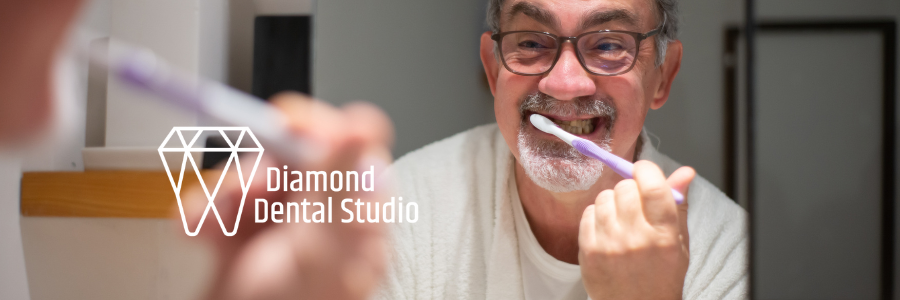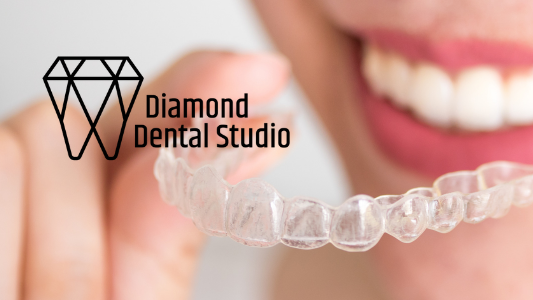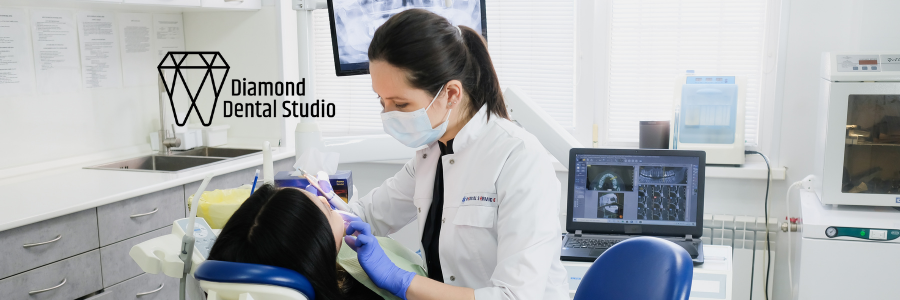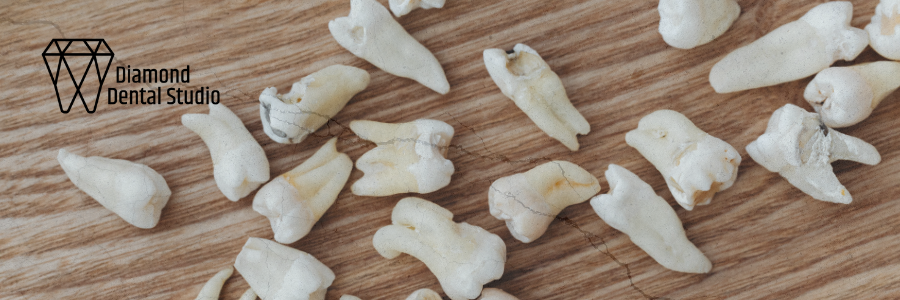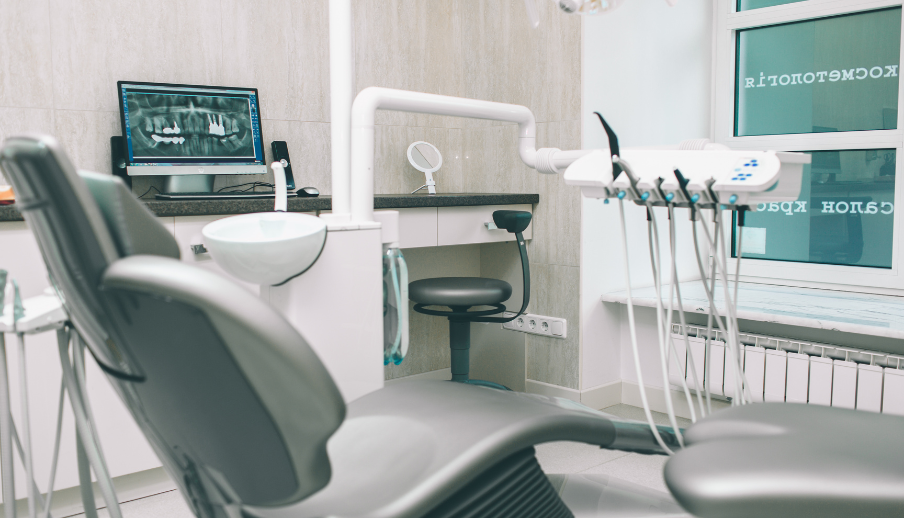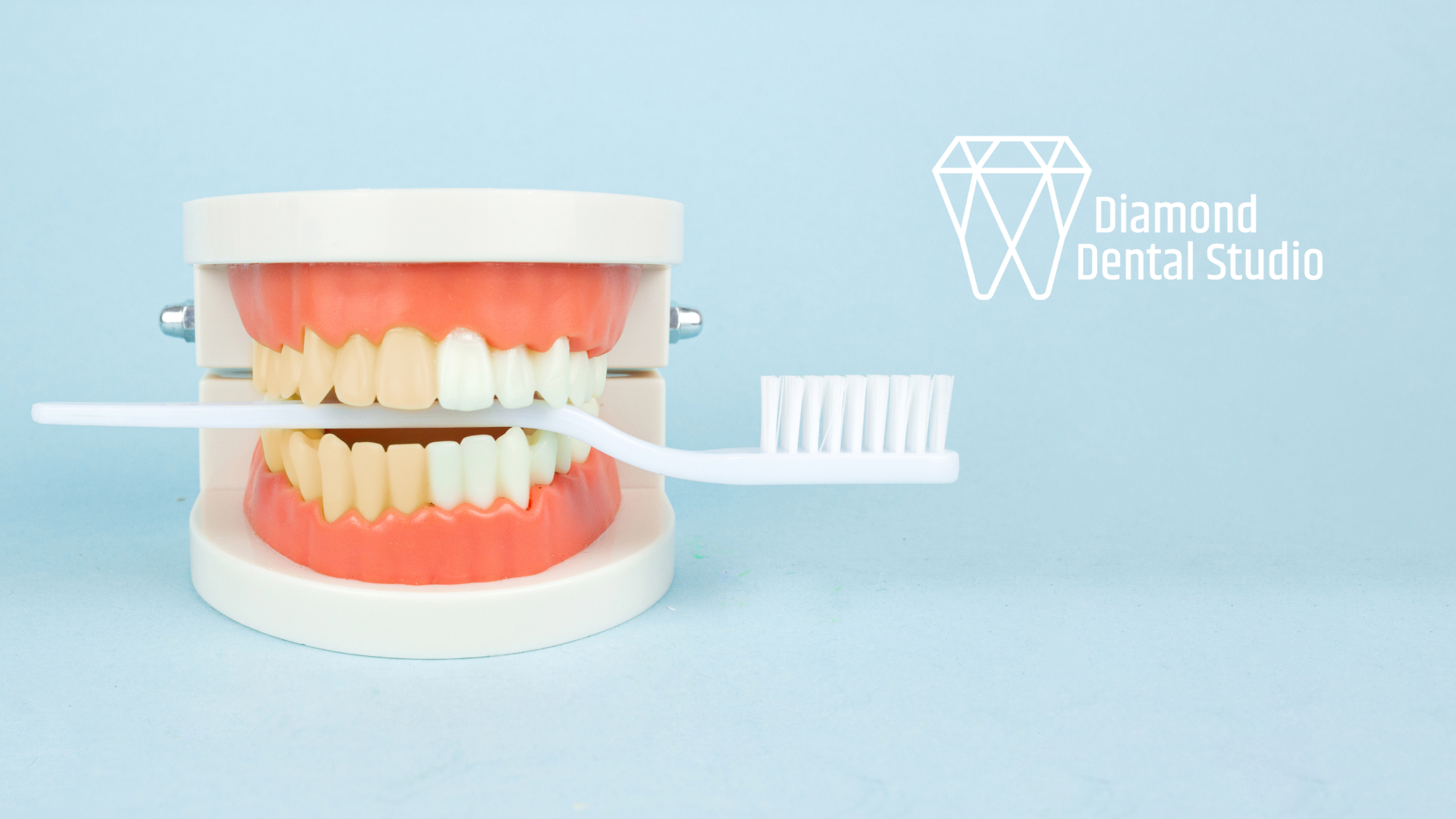Dentures: A Medical Necessity or Cosmetic Enhancement?
Understanding Dentures: Beyond Aesthetics
When people think about dentures, they often picture a cosmetic fix, something to make a smile look good again. And sure, they can certainly do that. But at Diamond Dental Studio, we know that dentures are much more than just a pretty face. They play a really big role in how your mouth works day-to-day.
Restoring Oral Functionality
Losing teeth isn't just about how your smile looks. It really messes with your ability to do basic things like eat and talk properly. Dentures are designed to replace those missing teeth, giving you back the ability to chew your food effectively. This means you can enjoy a wider variety of foods again, which is important for your health. Think about trying to eat a crisp apple or a tough piece of steak with gaps in your smile – it’s not easy, or even possible sometimes. Dentures bring back that chewing power.
Addressing Tooth Loss Impact
Tooth loss can have a ripple effect on your entire mouth and even your overall well-being. Without teeth, the jawbone can start to shrink, which can change the shape of your face over time. This can make your cheeks look sunken and your lips thinner. Dentures help to support your facial structure, keeping things looking more natural. They also help to keep your remaining teeth from shifting into the empty spaces, which can cause bite problems down the line.
Dentures are a practical solution that helps maintain the integrity of your oral health and the structure of your face after tooth loss.
Here are some of the ways dentures help restore function:
- Chewing: They provide surfaces to grind food, making digestion easier.
- Speaking: Missing teeth can cause lisps or slurring; dentures help with clear speech.
- Facial Support: They fill out the cheeks and lips, preventing a collapsed appearance.
The Medical Imperative for Denture Use
While many think of dentures as a way to improve a smile, their role often goes much deeper, touching on fundamental aspects of health and well-being. At Diamond Dental Studio, we see firsthand how replacing missing teeth with dentures can significantly impact a person's overall health, moving them beyond simple aesthetics into the realm of medical necessity.
Preventing Further Oral Health Issues
Losing teeth isn't just about an incomplete smile. When teeth are missing, the surrounding teeth can start to shift and drift into the empty spaces. This can lead to bite problems, making it harder to chew properly and potentially causing jaw pain or temporomandibular joint (TMJ) disorders. Bone loss in the jaw is another serious consequence; without the stimulation of tooth roots, the jawbone can deteriorate over time. This can change the shape of your face and make it difficult to wear dentures in the future. Dentures, by filling these gaps, help to stabilize the remaining teeth and provide some support for the jawbone, acting as a preventative measure against these cascading problems.
Improving Nutrition and Digestion
Chewing is the first step in digestion. When you're missing teeth, especially molars, chewing effectively becomes a challenge. This can lead to a diet that's softer and less varied, often lacking in essential nutrients found in tougher foods like raw vegetables and certain meats. Poor chewing can also mean that food isn't broken down properly before it reaches the stomach, potentially leading to digestive issues. Dentures restore your ability to chew a wider range of foods, supporting better nutrition and making digestion easier. It’s a direct link between oral health and overall physical health.
Enhancing Speech Clarity
Teeth play a vital role in forming sounds and articulating words. Missing teeth, particularly those in the front, can make it difficult to pronounce certain consonants and vowels clearly. This can affect everything from everyday conversations to professional interactions. Dentures replace these missing teeth, allowing for more precise tongue and lip movements. This restoration of speech clarity can have a profound impact on confidence and social engagement. It’s a functional improvement that many people don't consider until they experience the difference themselves. While some might associate dental work with cosmetic dentistry in San Diego, the functional benefits of dentures are undeniably medical.
Are Dentures Considered Cosmetic?
It's easy to think of dentures as purely cosmetic, like a new hairstyle or a brighter smile. And sure, they can certainly make you look good. But calling them just cosmetic really misses the bigger picture. At Diamond Dental Studio, we see how much more they do for people.
The Role of Dentures in Facial Structure
When you lose teeth, it's not just your smile that changes. The bone in your jaw, which used to support those teeth, starts to shrink away. This can make your face look sunken, especially around the cheeks and lips. Dentures, particularly full dentures, act like a scaffold. They fill out the space where teeth used to be, supporting your facial muscles and giving your face a more natural, youthful shape. It's like rebuilding the foundation of a house; without it, everything else starts to sag.
Losing teeth can lead to a noticeable change in facial appearance, making someone look older or less healthy. Dentures help to restore that lost volume and support, which is a significant functional benefit, not just a superficial one.
Psychological Benefits of Restored Appearance
Looking good often feels good, right? For many people, losing teeth can be a blow to their self-esteem. They might avoid smiling, talking, or even eating in front of others. Getting dentures can change all that. It's not just about having a full set of teeth; it's about regaining confidence. When you feel better about how you look, you tend to engage more with the world. This can lead to:
- Improved social interactions
- A greater willingness to try new foods
- A general boost in overall mood and outlook
So, while the aesthetic improvement is undeniable, the psychological lift that comes with it is often a direct result of restored function and a return to a more normal way of living.
When Dentures Serve a Medical Purpose
While dentures can certainly improve a person's smile, there are specific situations where they are not just about looks but are a genuine medical necessity. At Diamond Dental Studio, we see how vital dentures can be in these cases.
Post-Surgical Rehabilitation
Sometimes, after surgery in the mouth or jaw area, people need dentures to help them heal properly and regain function. This could be due to trauma, cancer treatment, or other medical procedures that affect the oral structure. Dentures in these scenarios help:
- Support remaining tissues and bone.
- Prevent the collapse of facial muscles.
- Allow for easier eating and speaking during recovery.
- Protect surgical sites from irritation.
It's not about vanity; it's about getting back to a normal life after a significant medical event.
Managing Congenital Defects
For individuals born with certain conditions that affect the development of their teeth or jaw, dentures can play a critical role in their oral health and overall well-being. These conditions might include cleft palate or other developmental anomalies. Dentures can:
- Aid in speech development by providing proper tongue support.
- Help with chewing and swallowing, which can be difficult with missing or malformed teeth.
- Support the structure of the face, contributing to a more typical appearance and preventing further structural issues.
In these instances, dentures are a medical tool, much like a prosthetic limb, helping individuals function and live more
comfortably despite their condition. They are a key part of a treatment plan designed to address specific health challenges.
These are clear examples where the need for dentures goes far beyond simple cosmetic enhancement, directly impacting a person's health and ability to function daily.
The Distinction Between Cosmetic and Medical Dental Work
Defining Cosmetic Dental Procedures
Cosmetic dental procedures are primarily focused on improving the appearance of your smile. Think of things like teeth whitening, veneers, or even some types of braces that are chosen mainly for aesthetic reasons. While these treatments can boost confidence, their main goal isn't to fix a health problem or restore basic function. At Diamond Dental Studio, we see many patients interested in these types of treatments, and we always discuss the aesthetic goals first.
Defining Medically Necessary Dental Procedures
Medically necessary dental procedures, on the other hand, are performed to maintain or restore oral health and function. This includes treatments for decay, gum disease, trauma, or tooth loss that impacts your ability to eat, speak, or avoid further health complications. Dentures, when needed to replace missing teeth that affect chewing or cause other oral health issues, fall squarely into this category.
It's important to recognize that the line between cosmetic and medical can sometimes blur. A procedure might have both aesthetic and functional benefits. However, the primary driver for the treatment is what usually determines its classification.
Here are some key differences:
- Purpose: Cosmetic work aims for appearance; medical work aims for health and function.
- Impact: Cosmetic procedures improve aesthetics; medical procedures address pain, disease, or loss of function.
- Necessity: Cosmetic treatments are elective; medical treatments are often required to prevent further problems or restore basic capabilities.
Insurance Coverage and Medical Necessity
Figuring out if your dentures are covered by insurance can be a real headache. It often comes down to whether they're seen as a medical necessity or just a cosmetic choice. At Diamond Dental Studio, we understand that this distinction is important for our patients. Generally, if tooth loss impacts your ability to eat, speak, or maintain your oral health, dentures are considered medically necessary.
Navigating Insurance Policies for Dentures
Insurance plans vary a lot, so it’s always best to check your specific policy details. Here’s what you might find:
- Coverage for Full or Partial Dentures: Many policies will cover dentures if they are needed to replace missing teeth that affect your health or function.
- Exclusions for Cosmetic Procedures: If dentures are purely for aesthetic reasons, like changing your smile without a functional need, they might not be covered.
- Pre-authorization Requirements: Some insurance companies require pre-approval before you get dentures. This usually involves your dentist providing documentation about why the dentures are medically needed.
It's not uncommon for insurance companies to request detailed notes from your dentist explaining the functional impact of missing teeth. This documentation helps them determine if the procedure meets their criteria for medical necessity, which can include issues with chewing, speaking, or preventing further oral health decline.
Criteria for Medical Necessity in Dental Claims
Insurance companies typically look for specific reasons when deciding if dental work is medically necessary. For dentures, these can include:
- Restoration of Function: Proof that missing teeth significantly impair your ability to chew food properly, which can affect nutrition.
- Speech Impairment: Documentation showing that missing teeth have led to difficulties in speaking clearly.
- Prevention of Further Oral Health Problems: Evidence that not replacing missing teeth could lead to other issues, such as jawbone deterioration or the shifting of remaining teeth.
- Post-Traumatic or Post-Surgical Needs: Cases where teeth were lost due to injury, disease, or necessary surgery often qualify as medically necessary.
Wrapping Up: More Than Just a Pretty Smile
So, when we look at dentures, it's clear they're not just about making your smile look good. Sure, they can help with that, giving you back confidence when you talk or eat. But for many people, getting dentures is really about being able to chew properly and stay healthy. It's about making sure you can get the nutrition you need. So, while they certainly have a cosmetic side, the medical need is often the bigger story. Dentures help people live better, healthier lives, and that's a pretty important point to remember.
More Than a Pretty Smile: Restoring Your Life
Ultimately, while dentures can certainly boost a person's self-esteem by restoring their smile, the bigger story is their role in restoring health and function. They help people chew their food, speak clearly, and maintain their facial structure, allowing for a better and healthier quality of life.
Dr. Faith and the team at Diamond Dental Studio are dedicated to helping our patients restore not just their smiles, but their lives. To learn more about our philosophy and team, please visit ourAbout Us page.
If you have questions about whether dentures are the right option for you, don't wait to restore your health and confidence. Call Diamond Dental Studio at +1 858-546-0500 or book your VIP consultation online today to find out how we can help you get your healthy, happy smile back.
Disclaimer: The information provided on this blog is for general informational purposes only and does not constitute medical advice. It is not a substitute for professional dental care. Always seek the advice of your dentist or another qualified health provider with any questions you may have regarding a medical condition or treatment.**




